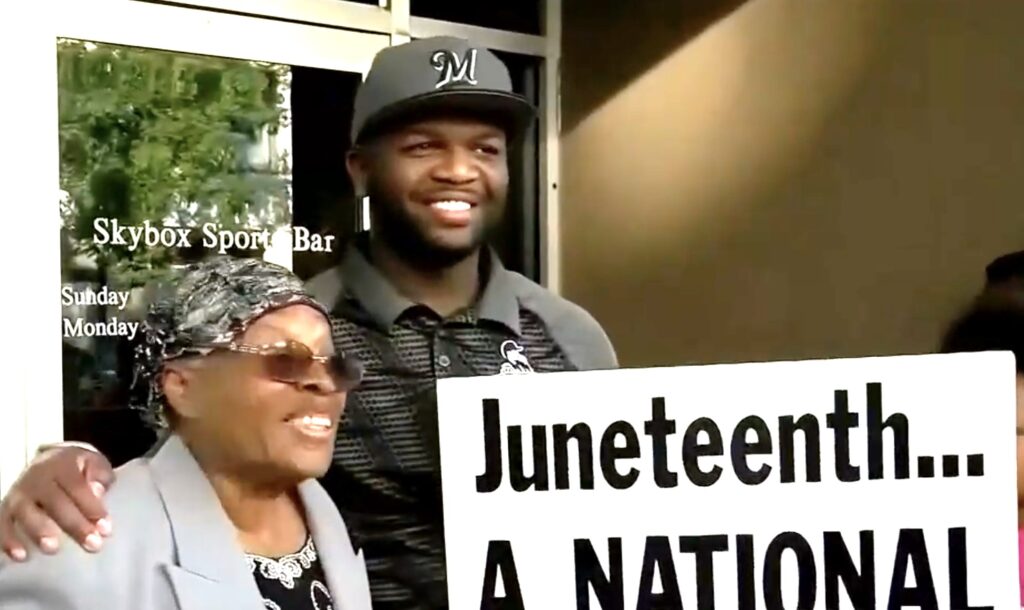
Juneteenth is being celebrated across the country with concerts, parades, parties, official ceremonies and family gatherings. The date was finally made a federal holiday last year after years of effort by activists. As we celebrate Juneteenth 2022, it’s important to reflect on the connection between the struggle of Black Americans to secure their rights and freedom, and the struggle to protect and expand democracy in America today. The two go hand in hand.
Slavery and its legacy have been in stark contradiction to the country’s stated democratic ideals. The centuries-long fight to make the country a real democracy continues, to this day, to revolve around the struggle of Black Americans in particular to have their lives and their human and civil rights respected.
Journalist Nikole Hannah-Jones, creator of The 1619 Project, has written that “centuries of Black resistance and protest…have helped the country live up to its founding ideals. And not only for ourselves…”
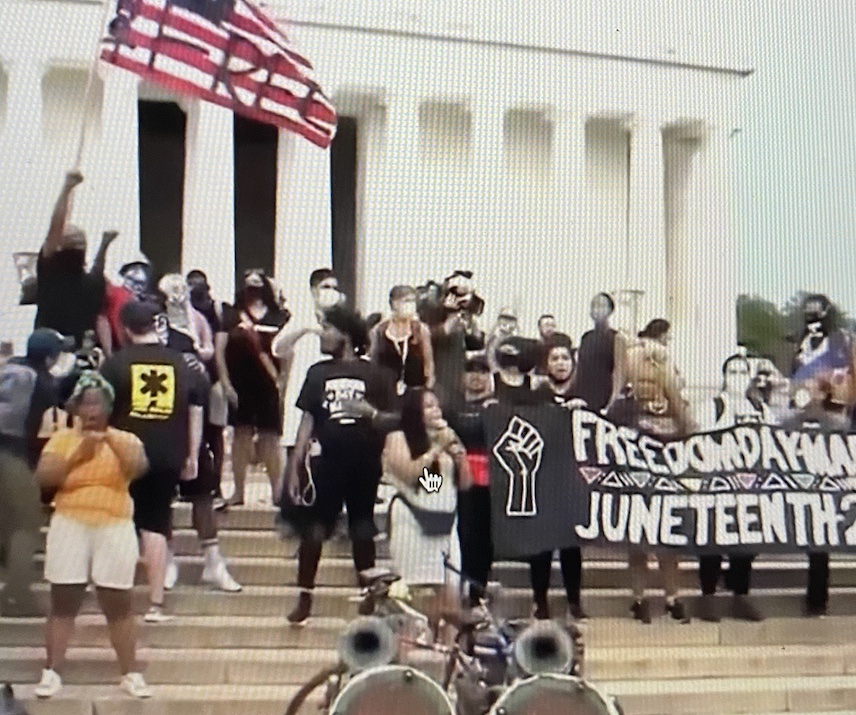
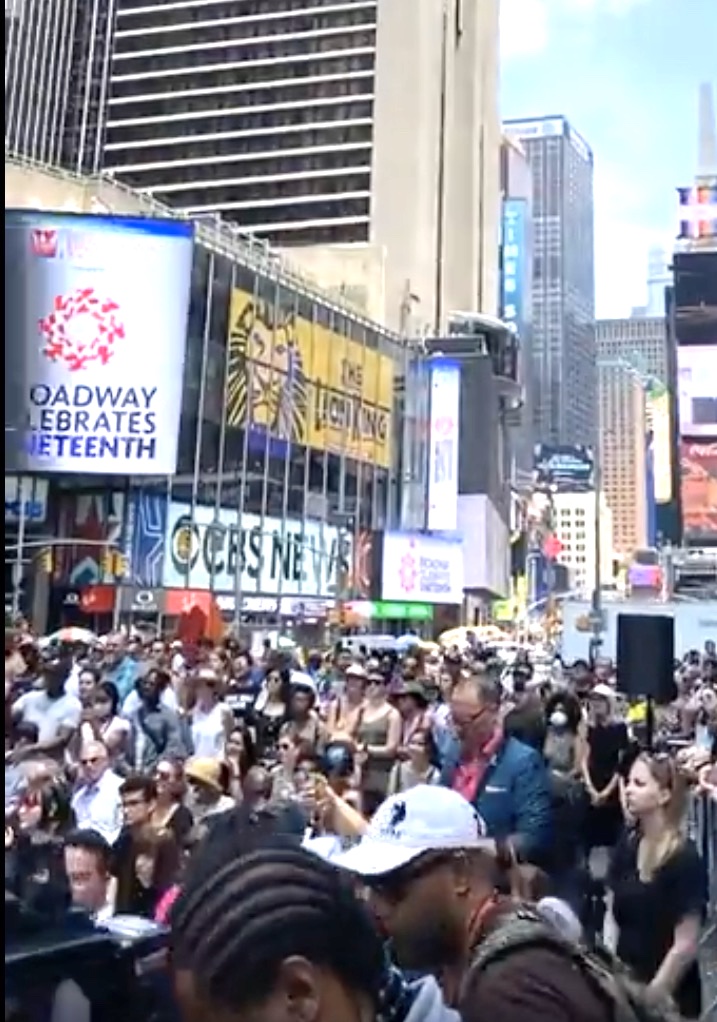
Every time Black Americans have advanced, there has been a democratizing effect for everyone, and every time the powerful have decided to turn back the clock on democracy, they start by attacking the rights of Blacks. We see this today, for example, in the police killings that disproportionately affect Blacks, and in the voter suppression efforts that are focused on Black voters but aimed at everyone.
In an interview with the Associated Press in December 2021, Hannah-Jones talked about the threat to democracy in America today. “I think that we are in a very frightening time. I think we have to ask ourselves …Are we ringing the alarm in the right way? Are we doing our jobs to try to uphold our democracy?”
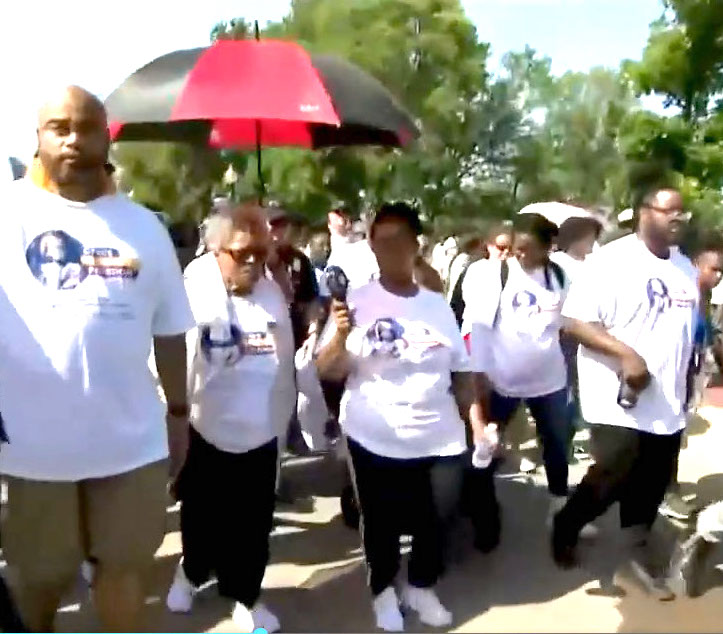
She said further, “This year [2021], to me, is just reflective of what I’ve always understood about this country. And that is that steps forward, steps towards racial progress, are always met with an intensive backlash.” Asked if she saw any progress in the discourse, she replied, “Certainly the fact that very powerful people are so concerned about a work of journalism called The 1619 Project that they would seek to discredit it, that they would seek to censor it, that they would seek to ban it from being taught, does speak to the fact that there are millions of Americans who want a more honest accounting of our history, who want to better understand the country that we’re in, who are open to new narratives.”
Last year, writer and poet Clint Smith published a book called How the Word Is Passed: A Reckoning with the History of Slavery Across America. He told Democracy Now in a 2021 interview that in the scope of human history, American slavery ended “only just yesterday.” He noted that “the woman who opened the National Museum of African American History and Culture alongside the Obama family in 2016 was the daughter of an enslaved person — not the granddaughter or the great-granddaughter or the great-great-granddaughter.” Smith added: “If we don’t fully understand and account for this history [of slavery and its legacy],…then we won’t fully understand our contemporary landscape of inequality today.”
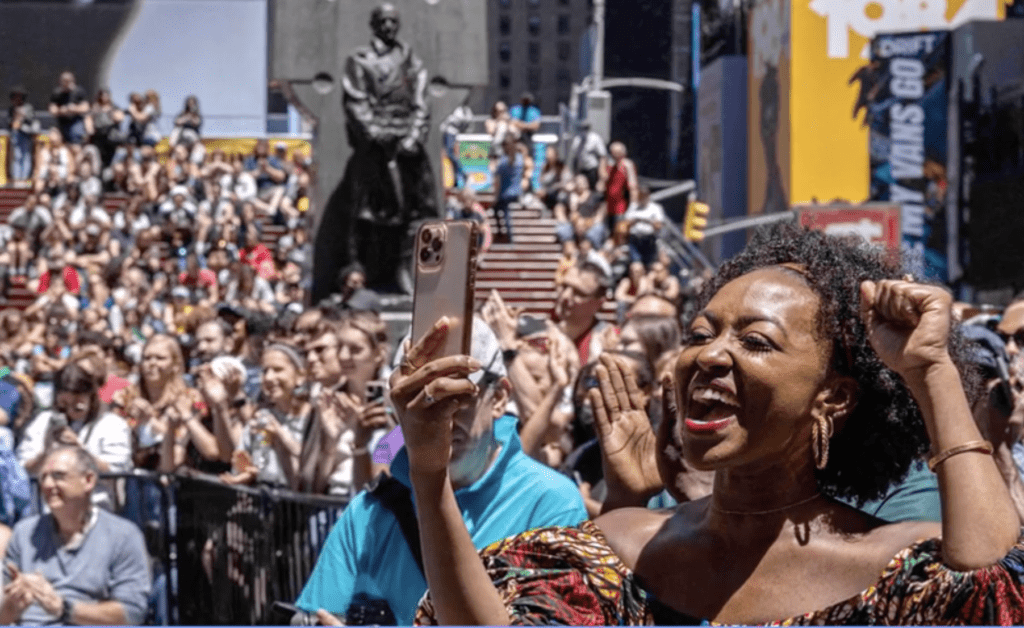
Dr. Opal Lee, the 95-year-old Texas activist known as the Grandmother of Juneteenth, said recently, “Juneteenth is not just a Texas thing, it’s not just a Black thing — we’re talking about freedom for everyone. We must realize that we are truly all brothers and sisters.” She has advocated that “we celebrate freedom from the 19th of June to the Fourth of July, because we weren’t free on the Fourth of July, 1776. That would be celebrating freedom — do you understand? — if we were able to do that.”
Given the rising rebellion against the conditions in this country, it’s no wonder the powerful want to eliminate democracy. As Hannah-Jones said, “We, as Americans, are going to be severely tested in the next year or two to decide what are we willing to sacrifice to be the country that we believe that we are? And whose rights do we hold as fundamental in this country? And are all Americans worthy of having those same rights? I don’t think we know the answer to that. But I think what is important for us to know is that we decide.”

